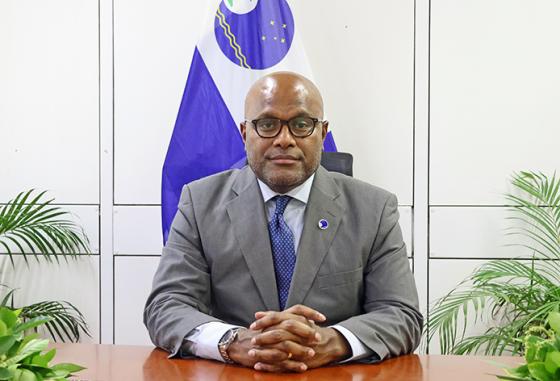Engagement, advocacy and visibility were the three objectives for the visit by the Pacific Islands Forum Secretariat team in Papua New Guinea last week, led by deputy secretary general, Esala Nayasi.
Through workshops and bilateral meetings with different government officials, ministries and other relevant partners at the Central Government Office in Port Moresby, discussions surrounded firstly, the 2050 Strategy for the Blue Pacific Continent and its implementation plan.
Nayasi highlighted how the leaders of Pacific Island Forum member countries including Papua New Guinea in 2023 endorsed the implementation plan at Rarotonga, Cook Islands.
“It’s important for us in our discussions with our members to be sharing with them some of the issues that are important for them to note. Progress on implementation of the strategy and also work with members in relation to some of the reporting, the monitoring and evaluation and the learning that we need to coordinate across countries in the region to progress the 2050 strategy implementation plan,” said Nayasi.
Secondly, the Secretariat’s discussions with stakeholders in PNG have to do with the review of the regional architecture. Nayasi explained that PIF leaders in Tuvalu made two key decisions in 2019. These were the formulation of the 2050 Strategy and a review of the regional architecture to have one that best supports the 2050 Strategy.
“So it is a key policy initiative that we are now driving as a region and there is an expectation that we will be reporting to the leaders when they meet in August in Tonga on this particular issue,” added Nayasi.
The third key issue centred on the Pacific Roadmap for Economic Development. Nayasi said, “It is a key priority for us under the thematic area of economic resource and economic development of the 2050 Strategy. We are now working on the Pacific Roadmap for Economic Development which will address this particular issue in seeing how best we can help our members coordinate efforts across the region to address the economic aspirations of our people.
“We have benefitted so much from the consultations. We see a lot of actualities to work with PNG, particularly in areas for which they have done well with a robust private sector that is here in order for us to see how we can work together as a region to address some of our core economic challenges and issue.”
Furthermore, Nayasi stressed on the significance of the Pacific Resilience Facility.
“Members of PIF over the years have always raised the concern about access to climate financing so the leaders again have asked that we redesign the Pacific Resilience Facility, one that is Pacific owned and Pacific driven. They’ll be able to ensure that our communities are able to access climate financing.”
The Deputy Secretary-General said the two windows to this facility are climate change and disaster response. Once more, Papua New Guinea was provided the opportunity to contribute in these discussions last week.
“We had the opportunity in the last two days (4-5 March) to have discussions with stakeholders here in Papua New Guinea to be able to get their insights and their views on the facility which we can take back with us to improve and also ensure that these issues are reflected in the redesign of the Pacific Resilience Facility that we will be presenting to leaders also when they meet in August,” stated Nayasi.
The 53rd Pacific Islands Forum is scheduled for 26-30 August 2024 in Tonga.














